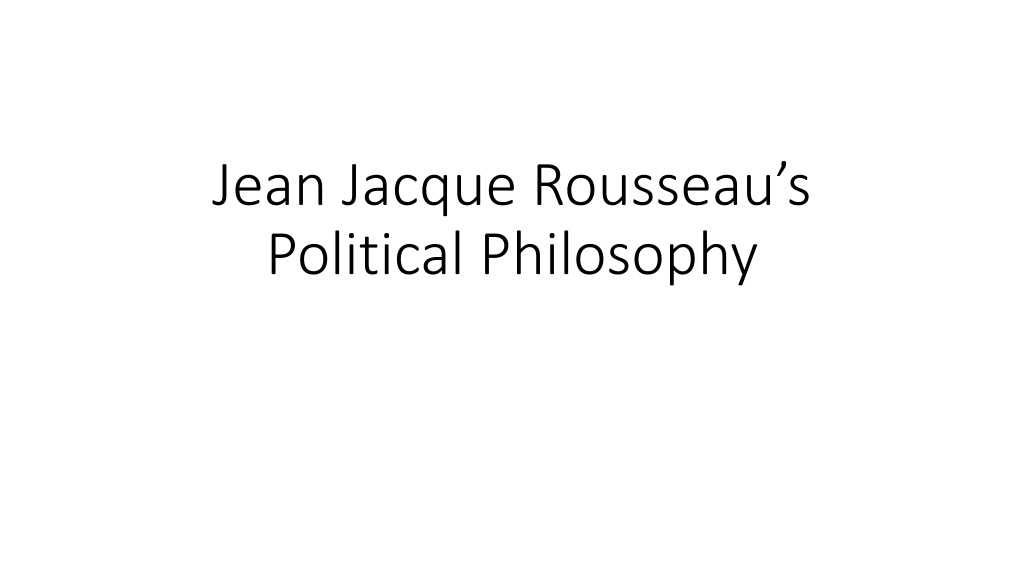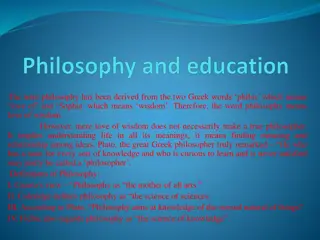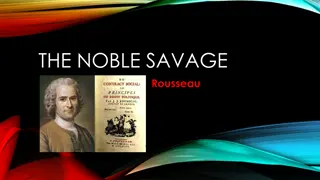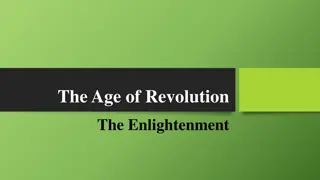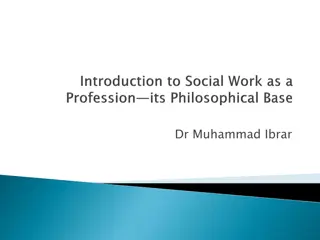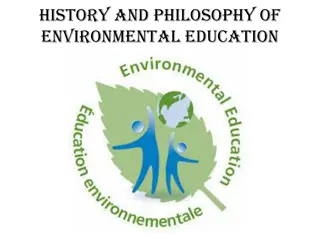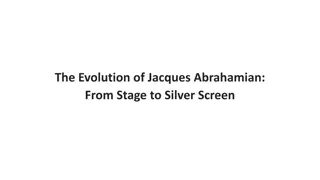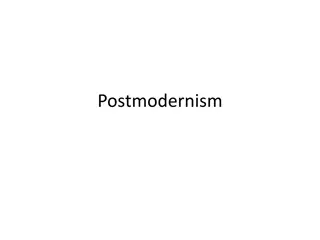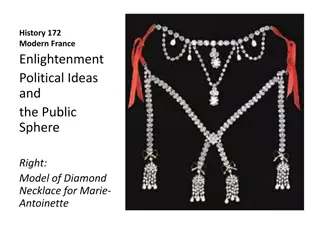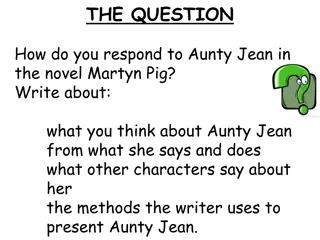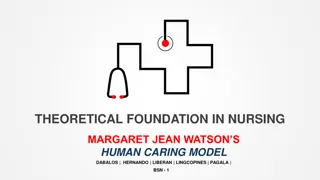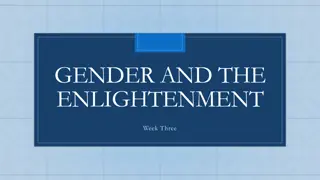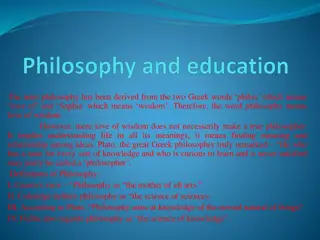Exploring Jean Jacques Rousseau's Political Philosophy
Jean-Jacques Rousseau, an influential political philosopher, was born in 1712 in Geneva, known for his works that inspired the French Revolution. His diverse talents ranged from writing to music composition. Rousseau's writings, including "The Social Contract" and "Emile," address themes of political philosophy, moral psychology, and education. His views have been interpreted in various ways, from liberal to republican. Rousseau's central concern was preserving human freedom in an interconnected world.
Download Presentation

Please find below an Image/Link to download the presentation.
The content on the website is provided AS IS for your information and personal use only. It may not be sold, licensed, or shared on other websites without obtaining consent from the author. Download presentation by click this link. If you encounter any issues during the download, it is possible that the publisher has removed the file from their server.
E N D
Presentation Transcript
Jean Jacque Rousseaus Political Philosophy
Brief History J.J Rousseau was born in 1712 in Geneva and he lived till 1778. his father is Isaac Rousseau, a watchmaker while his mother is Suzanne Bernard. His mother died shortly after giving birth to him. His father was exiled from Geneva when his son was 10 years old for challenging a gentleman above his rank to a duel. He threw the challenge because he was accused of not being a gentleman, which made him brandish a sword. He was a writer and political theorist whose works inspired the leaders of the French Revolution and the development of Liberal, conservative, and socialist theory. He made contributions to political philosophy and to moral psychology. He was into writing, composing of music. He is regarded as the modern pioneer of autobiography.
Rousseau was a man who puts his talent to variety of use. As a novelist, he wrote Emile, a treatise on the education of a child and Nouvelle Heloise, which complements and casts light on his political philosophy. he was also a composer of operas and he compiled a scholarly and authoritative dictionary of music, an activity which occupied him more than anything else throughout his life He was at some point a secretary to the French Ambassador in Venice. And while at this, he developed a passion for Italian music.
His works His works include: Discourse on the Sciences and Arts (1750), Discourse on the Origin of Inequality (1754) Discourse on Political Economy (1755) The Social Contract (1762) Emile (1762) Constitutional Project for Coscisa (1765) The Government of Poland (1772) Confessions of Jean-Jacques Rousseau (1782), among others.
Comments on his writings Rousseau is described a political thinker without systematic writing and thinking and as such the interpretation of his works is greeted with so much confusion leading to diverse angle of perceiving his views. Some have classified him as a totalitarian, while some see him as a liberal, and still others interpret him as a republican. David Boucher holds: If one gives prominence to Rousseau s preoccupation with moral creativity and redemption, he exudes the character of a liberal, but if one gives priority to the tendency towards enforcing conformity and the imposition of social and civic values, he begins to look much like a totalitarian. It may, however, be more appropriate to see him as a republican firmly rooted in the republican traditions of virtue, patriotism, and citizenship.
Central Point of his Work The main concern of Rousseau s works is to find a way of preserving human freedom in a world where human beings are increasingly dependent on one another for the satisfaction of their needs.
On human nature For Rousseau, human beings are good by nature but is corrupted by society. For Rousseau, civilisation, which includes the development of the knowledge of arts and science, corrupts both civic virtues and individual moral character.
Although this claim itself is contradictory, this is because if society is made of good people, from where does the corruption come? The other critique of this position is that one may wonder what natural goodness is in itself.
Rejection of Hobbes Notion of State of Nature In order to make his argument for human nature, For Rousseau, Hobbes position that men are selfish and self-seeking and competitive by nature in the state of nature is to be rejected. He also rejected that history has brought progress in the nature of man, meaning that human nature has not changed. This is because to him, the difficulty in using the idea of a state of nature is that those who use it project characteristics of the present understanding of society upon men in their original condition. Rousseau believes that the state of nature is neither a social nor a moral condition. It is rather a condition in which no one has the right to rule over another and there is no justice nor injustice and men are portrayed as solitary and self-sufficient.
In any case, for Rousseau, human beings possess self-love (amour de soi), and compassion (pitie). Self-love enables human beings to attend to their most basic needs like food, shelter and warmth. The possession of self-love is because Rousseau believes that human beings are a creation of who equipped them with the means to satisfy their natural needs. On the other hand, compassion enables human beings to attend to and relieve people. the suffering of other
Rousseau believes that man is born free but is everywhere in chain. and consequently there is the need to sustain human freedom. There are two ways of sustaining human freedom for Rousseau- a political arrangement and through a project of child development and education.
The political arrangement should be aimed at constructing political institutions that allow for the co-existence of free and equal citizens in a community where they themselves are sovereign on the other hand, the system of child development and education should foster autonomy and avoid the development of the most destructive forms of self- interest
The Right Political Arrangement For Rousseau, democracy is best in small states, while aristocracy is best in middle-sized states, and monarchy in large ones. He prefers small states because he feels that they make democracy more practicable. So for him, democracy is to be practices as it is in the ancient Greek city of Athens, where the practice of democracy involved direct participation of every citizen.
The Social Contract For Rousseau, the source of modern evils is the invention of private property and the social contract is the device by which the consequent inequalities arose as the means to consolidate them. Thus, his work on the social contract aims at addressing the evil on the original contract with a new theory of freedom, which is conceived in terms of obedience to the general will.
Rousseau is of the view that the human world is a product of human intelligence and as such the evils-power politics, insecurity, immorality- we see around are all of human creation. However, through the human will they can be conquered through the human will. This shows Rousseau s faith in human capacity for self- redemption
Rousseau can be said to be different from the other social contract theorists- Hobbes and Locke, on the ground of not positing reason as the main ingredient that made people to behave and reconstruct the state of nature. For him, the need to change the state of nature is because of self-preservation and sympathy.
the society is formed in order to further secure self-preservation after emerging from the state of nature. And society is formed with the aim of forming an association which will defend and protect the whole common force, the person and his property. What each individual does is to surrender his/her rights to the whole community
For Rousseau, the law is the expression of the general will. All citizens have the right to contribute personally, or through their representatives, to its formation. It must be the same for all, whether it protects or punishes. All citizens being equal in its eyes, are equally admissible to all public dignities, positions, and employments, according to their capacities, and without any other distinction than that of virtues and their talents
The law to Rousseau is a public and solemn declaration of the general will on an object of common interest
Freedom and autonomy There is a so much emphasis in Rousseau's works on freedom and autonomy. His political thought is mainly preoccupied with the need to set men free from tyranny, both from within and without. In Rousseau s view there is the need for both spiritual liberty and ethical liberty. Ethical liberty is to complement the spiritual liberty, but ethical liberty, he believes cannot be achieved without a radical transformation of the social order. For him, man is basically good and it is society that has corrupted him and by so doing put him in chains. For him, Man is born free, but everywhere in chains.
Freedom is also seen as being essential to obeying the law. Thus he holds that: a free people obeys, but it does not serve, it has leaders but no masters; it obeys the laws, but it obeys only the laws, and it is due to the strength of the laws that it is not forced to obey men.
